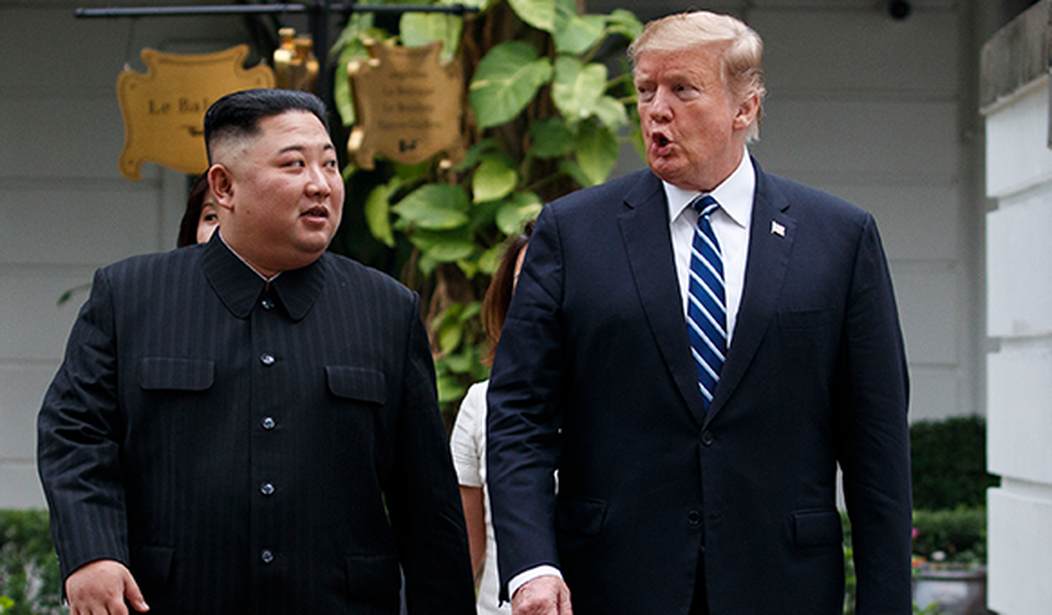Amid stalled negotiations and rumors of a possible third summit between President Trump and North Korean leader Kim Jong-un, North Korean state media this month announced “a test-fire of a new-type tactical guided weapon,” while Pyongyang also called for Secretary of State Mike Pompeo to be replaced and dismissed National Security Advisor John Bolton’s demands for Kim to show progress on denuclearization. Although these developments sound concerning, they do not spell the end of the road for U.S.-North Korea diplomatic progress.
Some American officials and commentators exaggerate the North Korean threat which heightens tensions and risks overreaction. However, Pyongyang is already deterred by Washington’s vastly superior conventional and nuclear forces. The real risk is future escalation cycles that lead to a nuclear crisis or war.
Properly dealing with North Korea requires recognizing the big picture and not overblowing every latest tit-for-tat development. Moreover, the pursuit of the impossible is a dead end, not a savvy negotiating strategy. Full denuclearization is fanciful, especially in the short-term. Kim firmly believes he needs nuclear weapons to ensure America and the other major powers on his doorstep never invade and depose him by force—he wants to avoid the fate of Gaddafi in Libya. He is unlikely to ever give up his weapons, but productive diplomacy equips the United States for future crisis management and lowers the risk of war—and it makes other goals more likely, like opening the country to the world and improving its abysmal human rights record.
Approaching Pyongyang with only sticks or carrots is bound to fail. North Korea must be contained and deterred, yes, but their nuclear weapons mean “preventive war” or “bloody nose” strikes on their nuclear facilities or any other targets would be catastrophic. The Pentagon projects 20,000 fatalities a day in a conventional conflict, and a study by 38North at the Stimson Center calculated nuclear weapons would cause 2.1 million deaths and 7.7 million injured. This is not an acceptable risk.
Moreover, North Korea’s recent weapons test is simply the latest episode in its long-standing pattern of saber-rattling. It is part of Pyongyang’s efforts to deter regime change and jumpstart negotiations. Kim is bellicose and ruthless, but he wants his regime to survive and is signaling he is unhappy with current negotiations.
Recommended
In that light, exaggerating Pyongyang’s threat is risky in the extreme. Bolton’s push for a preventive attack on North Korea is especially unwise and unnecessary. (If we can deter and coexist with Moscow and Beijing without war, surely we can do the same with the far weaker Pyongyang.)
The August 2017 overreaction to North Korea’s public ruminations about launching missiles near Guam is especially instructive. Pyongyang’s official news outlet stated it was “considering” sending rockets that could demonstrate “historic enveloping fire at Guam.” That was clearly provocative, but in the same statement, North Korea said its rockets would “hit the waters 30 to 40 km away from Guam” and re-emphasized its plans weren’t set in stone. North Korea will not start a war with the U.S. because Kim Jong-un understands he would be signing his own death warrant—and he wants to survive, above all else.
North Korea routinely threatens America and its neighbors, but these taunts are internal propaganda and external deterrence, not the start of actual conflict. Kim knows he would lose in a fight, and American policymakers (and press) should read between the lines and respond accordingly—that means responsibly.
This latest tactical weapons test likewise caused worries Pyongyang had resumed ballistic missile testing previously halted as a goodwill gesture. But, according to the Pentagon, the test was not a ballistic missile. Instead, U.S. and South Korean officials have speculated it was likely an artillery or anti-tank weapon. It was not a serious prelude to war or an earth-shattering new development.
Short-term rumors of North Korean tests or wild hopes for denuclearization are not and should not be the point of diplomacy. The purpose of engagement is to prevent overreaction, not to fuel it.
Diplomacy is about lowering the temperature, building a baseline of trust, and creating lines of communication all in service of realigning interests to achieve win-win outcomes. All of these are better than remaining in a hostile atmosphere where Washington and Pyongyang are on edge. No war is inevitable, and leaders and commentators close their country’s options when they talk as if it is.
Accidents, misperception, and panic can cause either country to assume the other is about to attack. The antidote is productive engagement, not exaggeration of every new event or loose talk of preventive strikes. Trump has been right to talk to Kim, and he should continue to do so, focusing on long-term crisis management—not denuclearization or the latest headlines.

























Join the conversation as a VIP Member